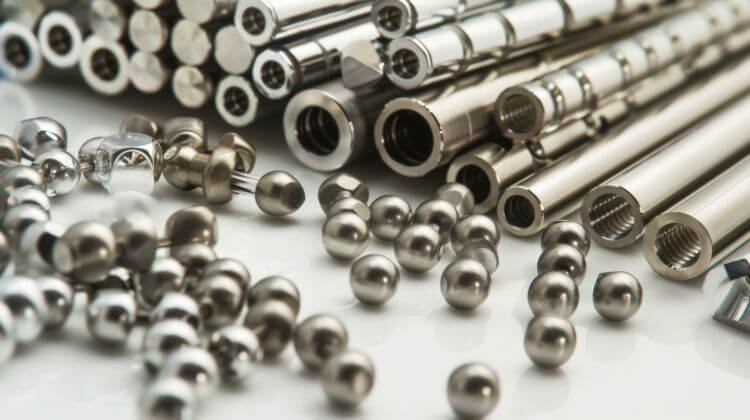Published - 29th Aug 2024

Superalloys are a group of high-performance alloys characterised by their excellent mechanical strength, resistance to high temperatures and corrosion resistance. Common superalloy materials include nickel and cobalt-base (non-ferrous) alloys, and iron-base (ferrous) alloys.
Nickel-base superalloys, including Inconel and Hastelloy, are the most widely used superalloys. A superalloy will be termed ‘nickel-base’ if the balance of material after other components (usually no more than 30%) is nickel.
Nickel-base superalloys are increasingly cast for demanding applications in preference to materials such as steel and iron because of their strength and ability to resist corrosion.
Cast nickel-base superalloys offer exceptional strength due to the formation of precipitates in the material. These precipitates tend to be made out of elements like niobium, titanium and aluminium, which react with the nickel to form precipitates during the solidification process, provided that the molten metal is cooled at the right rate.
Nickel-base superalloys also remain strong at high temperature, as the nickel precipitates change the strength to temperature ratio of the alloy. Most metals gradually lose strength as they are heated. Nickel-base superalloys retain their strength to a high percentage of their absolute melting temperature, up to about 85% of their melting point. This makes them much stronger than metals like iron, even though the melting point of iron is higher.
Corrosion is caused by the reaction of elements in the exposed metal with its surrounding environment. In stainless steel, chromium added to the steel ensures that a rapid oxidation occurs to protect the base material, so the steel does not rust.
Unlike iron, nickel is relatively stable and not very reactive with oxygen. In addition, nickel-base superalloys contain alloying elements such as chromium, aluminium, and titanium which react more quickly than nickel with oxygen in the environment. Strong layers of the resulting oxides protect cast nickel-base superalloys from any corrosive environment.
The demand for jet engine components able to withstand high temperatures spearheaded the development of nickel-base superalloys, which possess an exceptional strength to temperature ratio. Nickel-base superalloy components are widely used in the aerospace and nuclear industries.
However, in order to preserve this strength at high temperature, the nickel-base superalloy must be manufactured in a vacuum furnace to avoid reactions that form deleterious oxides and nitrides. Manufacturing components from nickel-base alloys for this specific quality of strength at high temperature is therefore an expensive process.
Where strength and corrosion resistance are key, but there is no requirement for performance at extreme temperatures, nickel-base superalloy components can be the perfect solution. Nickel-base superalloys are both stronger and more resistant to corrosion than alternative metals such as stainless steel.
Whilst nickel-base superalloys are expensive materials, investment casting for strength and corrosion resistance can be carried out by experts at Investacast in air. Since this avoids the need for expensive vacuum facilities, air casting is a more cost-effective process.
Applications demanding strength and high resistance to corrosion include marine environments, and the energy, defence and transportation sectors; as well as components such as weirs in abatement systems, where the contaminated water can be highly corrosive.
There is also a growing demand for nickel-base superalloy components in a wide range of applications where strength and resistance to corrosion can deliver components with a longer lifetime.
Investacast has the expertise to investment cast nickel-base superalloys in air, removing the need for expensive vacuum facilities. This makes casting nickel-base superalloys cost-effective for a wider range of demanding applications.
In sectors such as Oil & Gas, downtime for repairs and replacement is an important consideration. Manufacturing from strong and highly corrosion resistant nickel-base superalloys can significantly extend the lifetime of components. Where a stainless steel component might last three years, the same component cast from a nickel-base superalloy might last several times as long. Changing the metal from which you manufacture key components can deliver important cost downs in the longer term.
Investacast has years of experience in air investment casting nickel-base superalloys and please contact us for more information on sourcing your strong, highly corrosion resistant components.
If you have a project, talk to our experienced sales team
Contact us